We take pause for the holidays to look back at the big stories of 2013 from the start of Obama's second term and the continued partisan deadlock in Washington to attempts by the GOP to reorganize after the elections of 2012. Gwen talks with 16 regular Washington Week panelists to get their perspective and analysis on the stories that shaped 2013.
Full Episode: The Stories That Shaped 2013
Jul. 08, 2014 AT 12:59 p.m. EDT
TRANSCRIPT
Notice: Transcripts are machine and human generated and lightly edited for accuracy. They may contain errors.
GWEN IFILL: As we prepare to ring in 2014, we're all in the business of setting new goals and imagining possibilities – yes, even in Washington. But before we look ahead, we look back at the news that shaped 2013, tonight on Washington Week.
PRESIDENT BARACK OBAMA: (From tape.) America’s possibilities are limitless, for we possess all the qualities that this world without boundaries demands: youth and drive, diversity and openness –
MS. IFILL: Inauguration Day – a day for big promises, bigger hopes, a fresh start.
PETER BAKER: And then the rest of the year happens. Instead of the second term he wanted, he gets the second term he got.
MS. IFILL: A term full of perpetual partisan battles with Congress: budgets, spending, fiscal cliffs, and eventually a government shutdown.
SENATE CHAPLAIN BARRY BLACK: (From tape.) Lord, deliver us from governing by crisis.
MS. IFILL: And that’s before the Republicans began fighting among themselves.
SUSAN DAVIS: It's been incredibly difficult for John Boehner. I don't think he anticipated that the rise of grassroots conservatism would see him as an enemy and not as an ally.
MS. IFILL: Meanwhile, the Obama administration’s most ambitious achievement would become its own stumbling block -- the botched launch of the health care exchanges that were the centerpiece of its domestic policy.
PRESIDENT OBAMA: (From tape.) We fumbled the rollout of this health care law.
REPRESENTATIVE JOHN BOEHNER (R-OH): (From tape.) The president’s health care law continues to wreak havoc on American families, small businesses and our economy, and it’s not just a broken website.
MS. IFILL: The good news? Unemployment dropped and the economy bounced back, spurring the stock market to new highs. But abroad, more conflict: in Syria, in Iran, in Afghanistan.
INDIRA LAKSHMANAN: Karzai said, well, I’m not going to sign it. He’s worried. He doesn’t want to be blamed if people turn on this deal.
MS. IFILL: Plus, the culture debates return in force: Who's spying on whom? Who gets to vote? Who gets to marry? We explore our roller-coaster year with the “Washington Week” panelists who've been there to bring you the stories.
ANNOUNCER: Award-winning reporting and analysis, covering history as it happens, from our nation’s capital this is “Washington Week with Gwen Ifill.”
(Station announcements.)
ANNOUNCER: Once again from Washington, moderator Gwen Ifill.
MS. IFILL: Good evening. When 2013 enters the history books, conventional wisdom will mark it down as a tough one for President Obama, who – like second-termers before him – discovered how bad news can wipe out the good, especially when divided government turns every debate into a fight, every achievement into a footnote, and every misstep into a potential disaster.
MR. BAKER: Well, President Obama started the year in a high from the re-election and he had just gotten through a tax and spending agreements with the Congress and he gives an inaugural address that’s sort of filled with grand aspirations, and then the rest of the year happens.
KAREN TUMULTY: There was a sense that somehow the election actually decided something, maybe – to use the president’s phrase – that the fever had been broken. And the year was actually all about Washington dysfunction being even deeper than ever.
MR. BAKER: Instead of the second term he wanted, he gets the second term he got. And that means the gun control legislation he sent to the Hill doesn’t go anywhere and the immigration legislation he’s pushing on the Hill ends up passing the Senate, but buried in the House. And he finds himself again and again locked in sort of mortal combat with Congress producing nothing that he particularly wants to see.
JOHN HARWOOD: You’ve got two parties that are ideologically very far apart that are in a permanent partisan war, and when you have divided government and each party has a veto in different ways, no, you can't get big things done. The question is whether or not something causes the warfare to slow down or whether one side gets an overwhelming position. Democrats did, In 2009, 2010 they passed a big healthcare law
DAN BALZ: There's no way you can look what's happened to him over the last year and say he’s had anything other than a bad year. I mean, his approval is way down. His – questions about his leadership are more persistent than they were. He has credibility problems at this point.
MS. IFILL: Very little seemed to be within the president’s control. From fiscal cliffs to government shutdowns to thwarted efforts at gun control, there were roadblocks everywhere. But the president’s signature domestic accomplishment – his health care law – turned out to be his Achilles heel as well. With a spectacular website flameout, the law’s critics got wind at their backs, and the White House was backed into a corner.
PRESIDENT OBAMA: (From tape.) Obama: we fumbled the rollout on this health care law.
SECRETARY KATHLEEN SEBELIUS: (From tape.) I'm the first to admit that the rollout has been excruciatingly awful for way too many people.
JEANNE CUMMINGS: Total fiasco. Total fiasco and in many ways they can only blame themselves.
JACKIE CALMES: White House officials would say is that the main thing the president needs to do in his second term domestically is to implement the Affordable Care Act and make that a success. Well, if they identified that at the start of the term, it makes you wonder how it ended so badly this year because they’ve seen this date October 1st for the start up of these insurance marketplaces since the law was passed in early 2010.
MS. CUMMINGS: There was a complete failure of management. Who was to blame for that is yet unknown. However, the president apparently asked over and over again, is the website going to work? And all the assurances were that it would. And the real mistake, which in hindsight is obvious, is that they did not put in one person whose sole mission in life – (laughs) – was to make sure that website worked.
MS. CALMES: But, you know, the president has said it was an unforced error, you know. He believes that. He does blame himself as much as any single person in his inner circle,
MS. IFILL: Deadlines were pushed back, web gurus were brought in, enrollment improved, but the political damage had been done. However, the White House had one big advantage: The health care law is still the law.
MS. CUMMINGS: He sees the long-eye of history. That's his target. And he views this as his contribution to a growing menu of healthcare services to Americans, so from Medicare, prescription drug plans, coverage of Social Security – this is his. This is his foundational piece. This is history, and so he is not going to back away from it. His legacy is this: He inherited two wars. He inherited a financial crisis. He dealt with them. He got us out of one, is getting us out of the other war. The economy is recovering. He got us through all of that, but they weren't his. This one is.
MS. IFILL: Then there was congress, with its approval ratings down in the single digits, as Republicans disagreed among themselves about how to recover from a stinging 2012 defeat.
MS. DAVIS: For Republicans one of the great political stories of this year has been watching the infighting between the establishment Republicans, the tea party Republicans and not only establishment Republicans, elected lawmakers on Capitol Hill and the rise of these outside lobbying groups that are trying to capture and cultivate the tea party and in almost every turn have gone against Republican leaders on really tough votes.
MOLLY BALL: If you think back to the aftermath of the 2012 presidential election, and there was a lot of Republican soul searching after that election. Why did we lose? They didn't expect to lose. What is this country that we’re living in that maybe we don't recognize – a lot of the Republican establishment talking about we've got to change the policies that we offer to the American people, a lot of talk about modernizing on social issues and on immigration to attract different segments of voters. But the tea party sort of didn't take that lying down.
MS. TUMULTY: Within the Republican Party we see a party that is very much in search of its own identity.
MS. IFILL: Leading the charge for the tea party wing of the Republican Party, and grabbing national attention with a high-profile senate filibuster, was freshman Texas Senator Ted Cruz.
SENATOR TED CRUZ (R-TX): (From tape.) You know, “Green Eggs and Ham” has some applicability – as curious as it might sound – to the “Obamacare” debate.
MS. BALL: You did have people like Ted Cruz really stoking the flames, and it was really over the congressional summer recess that they lit the match on a new fight over “Obamacare,” which of course such a winning battle for them back in 2010. They reignited the “Obamacare” conversation just as the implementation was about to start. Conservatives rose up and they put pressure and Ted Cruz put a lot of pressure on the House Republicans to insist on defunding “Obamacare,” preventing it from going into effect, as a condition of funding the government. And that of course lead to the government when the president and the Democrats in the Senate quite predictably were not about to get rid of what they viewed as their central achievement.
MR. BALZ: The tea party certainly has had over the past six months a resurgence around the Affordable Care Act. And I think that has given a new energy to them and I think it has sharpened the differences between the establishment wing and the tea party wing.
MS. DAVIS: These lawmakers have a tremendous amount of influence, Ted Cruz, Rand Paul being another one. They really do capture the grassroots. And the question is, do they want to try and capture it and govern from the inside? Does Ted Cruz want to be majority leader one day or does Ted Cruz want to be more of a symbolic grassroots sort of hero? And I think the jury is out.
MS. IFILL: The tea party's durability presented a dilemma for the GOP leadership: How to lead a caucus when so many won't follow?
MS. DAVIS: It's been incredibly difficult for John Boehner. I don't think he anticipated that the rise of grassroots conservatism would see him as an enemy and not as an ally.
REP. BOEHNER: (From tape.) It’s time for the Senate to listen to the American people just like the House has listened to the American people.
MS. DAVIS: John Boehner is someone who, when he was elected to Congress in the early 90's, at the time shared the same spirit and vision that the conservative movement has. And in his mind he thinks he's been their guy all along, but when you've spent 20-plus years in Washington you're seen as establishment.
MS. IFILL: Democrats, who are typically the divided party, were remarkably in sync in 2012 – never more than when Senate Majority Leader Harry Reid decided to simply change Senate rules to get the president's nominees confirmed. They called it the "nuclear option."
SENATOR HARRY REID (D-NV): (From tape.) It’s time to change the Senate before this institution becomes obsolete.
MS. DAVIS: Harry Reid – I think he would say he had a pretty good year. I think the most tremendous thing Harry Reid did was when he made the move the change the rules of the Senate and to change the filibuster rules to make it easier to approve Barack Obama's nominees – all future presidential nominees, but Barack Obama’s in the short-term.
He thinks that history will be kind to him for this and that it seems like such a small Washington issue, but it is the kind of thing that changes – it's a turning point in the chamber and it could be the kind of thing that has a tremendous amount of influence in the way the Senate evolves in the next 10, 20, 30 years.
MS. IFILL: There was unfinished business as well. Mass shooting from Colorado to Connecticut did little to move the ball on issues like gun control.
MS. BALL: I think of it as a cultural-social issue than a public safety issue and it's been territory that Democrats feared to tread for a long time because in a lot of predominantly rural states it was something that they could count on to alienate a lot of people. It may be the case that 90 percent of Americans support things like background checks, but they don't vote on those issues. And the people who vote and the people who give money and the people who are active are the people on the other side.
MS. IFILL: Also waiting in line for takeoff, immigration reform.
MS. BALL: It did pass the Senate with pretty strong bipartisan support and John Boehner, the speaker of the House, at least in concept supports some type of immigration reform, as well as a number of other Republican heavyweights like Paul Ryan, who put together the yearend budget deal. That being said, there has been a failure to act to this point and the immigration activists are getting restless.
MS. IFILL: The year’s other major debate: For the first time since 9/11, Americans began to question the powers they have given their government to protect them from attack. For that they have Edward Snowden to thank. The national security analyst who leaked stacks of classified information showed how extensively the U.S. government was spying on its allies abroad and its own citizens at home.
MICHAEL DUFFY: I think we’re a long way from the end of the revelations and the implications of the details of the government’s spying – domestic and foreign spying program that were revealed by Edward Snowden, who’s now a fugitive from justice in Russia.
PRESS SECRETARY JAY CARNEY: (From tape.) Mr. Snowden is not a dissident. He is not a human rights activist. Mr. Snowden ought to be expelled and returned to the United States, where he faces felony charges.
REPRESENTATIVE MIKE ROGERS (R-MI): (From tape.) There should be no notion in anyone's mind that this person is a traitor to the United States of America.
MR. DUFFY: The public reaction to the Snowden revelations, which are more complicated – people particularly on the left and the far right are deeply troubled by this big hand of government reaching into what they had thought, or many had thought, perhaps were private matters.
REP. BOEHNER: (From tape.) These NSA programs have helped keep Americans safe. There are, in my view, ample safeguards to protect the privacy of the American people
MR. DUFFY: Most people by and large have thought, yeah, I figured the government might be doing something like this. Some part of the public is relieved that the government can do this and says this is helping to keep us safe, and since I’m not doing anything illegal or untoward, it’s fine if they collect all this stuff.
TOM GJELTEN: In the aftermath of 9/11, as a society we were determined to thwart another terrorist attack and were willing to give the intelligence community, the National Security Agency and other intelligence agencies, wide latitude to do whatever they felt was necessary to keep us safe from another terrorist attack. Now, as a result of these disclosures, we’re seeing, whoa, maybe we overreacted.
MR. DUFFY: Some of this was conducted with the knowledge and cooperation of private companies which run internet servers and other websites. And a lot of those companies are now looking for safe harbor, both from their own members and supporters and people who use their services, but also just to see if there is some safer place they can route this stuff – put this stuff to protect people who use their services.
MR. GJELTEN: The intelligence community really depends on secrecy and they much prefer to live in a world where everything they do is kept secret. This now is no longer possible because of the Snowden disclosures. And it’s interesting, do we say the Snowden disclosures caused all this damage to the United States or do we say that what the National Security Agency was doing is what caused the damage?
MS. IFILL: Diplomacy also made a comeback in 2013 as Secretary of State John Kerry embarked on a juggling act on three fronts: Israeli-Palestinian peace talks, brokering an end to the Syrian civil war, and forcing Iran to give up its nuclear ambitions.
PRESIDENT OBAMA: (From tape.) I've made it clear, in letters to the supreme leader in Iran and more recently to President Rouhani, that America prefers to resolve our concerns over Iran's nuclear program peacefully, although we are determined to prevent Iran from developing a nuclear weapon.
MS. LAKSHMANAN: There was a critical election that happened in June that ushered in a man, Hasan Rouhani, who is regarded as, within the context of the Iranian clerical leadership, a reformist who clearly made overtures to the United States that he wanted to have better relations. He was ready for some sort of a nuclear deal, and that brought us by the end of this year to a place where we do have a first-step interim accord, a six-month deal. We’ll see, of course, what happens with that next year. The proof is going to be in the pudding if they can get a final agreement, but Iran is clearly one issue.
MS. IFILL: Negotiating with an enemy like Iran is one thing. Overthrowing another, like Syrian President Bashar al Assad, has turned out to be more difficult.
SECRETARY OF STATE JOHN KERRY: (From tape.) Make no mistake: President Obama believes there must be accountability for those who would use the world’s most heinous weapons against the world's most vulnerable people.
DOYLE MCMANUS: If anything, the Obama administration's effort to push Bashar Assad out of power in Syria probably went backwards in 2013. It didn't really move forward in any way you can measure. After Assad had used we believe massive chemical weapons against civilian neighborhoods around Damascus, President Obama said, okay, the red line has finally been crossed, after trying to stave off that moment of decision for a long time even though the evidence was mounting that chemical weapons had been used. Got right up to the point of doing it, had second thoughts, said let's go to Congress, pulled back, got lucky in a sense in that the Russians jumped in and offered to negotiate a deal to get the chemical weapons out. So that solved one half of the problem.
Not only did it not solve the civil war, but it took the threat of American military force off the table and may in the end have prolonged a civil war.
MS. LAKSHMANAN: The war continues despite the deal that John Kerry and his Russian counterpart, Sergei Lavrov, came up with to remove chemical weapons from the Syrian conflict. We still have very much alive the war going on with, you know, more of these bucket-bombings happening, barrel-bombings happening this week. And you know, that is a real problem that hasn’t been resolved yet.
ISRAELI PRIME MINISTER BENJAMIN NETANYAHU: (From tape.) We seek peace with the Palestinians.
MS. LAKSHMANAN: Kerry made a big thing this year out of rebooting the Middle East peace talks. That was a really big deal and he has a deadline by the end of April for – he said his target was to have a final-status agreement between the Israelis and the Palestinians by then. Even if he doesn’t get that, if he were at least to get a framework accord to continue the talks, that would be a big deal.
MS. IFILL: And in yet another entanglement, the Obama administration is at a temporary stalemate with Afghan President Hamid Karzai over when U.S. troops will finally leave Afghanistan.
In any other year, the bright news on the economy would be enough to rescue a president from the doldrums. The unemployment rate is at its lowest in five years, and the Federal Reserve is making optimistic noises.
DAVID WESSEL: The economy got better in 2013. There’s no doubt about that. Unfortunately, it’s not completely healthy and I think we saw at the end of the year that people began to realize that the gains were not evenly shared, so the stock market gained more than 25 percent over the course of 2013 and wages barely went up at all. So the gap between Wall Street and Main Street, between the 1 percent and the people in the middle widened and I think because the crisis of the recession was past, people are saying, well, if the economy is growing again, and I see 200,000 jobs and the recession ended in 2009, how come i don’t see it in my paycheck? Why is my kid graduating from college and can’t find a job.
MS. IFILL: But even for some full-time workers, the problem of wage stagnation remains, as the gap between rich and poor continues to widen.
MICHAEL FLETCHER: It’s kind of a feeling that’s been in the economy for a long time – this idea that people at the bottom are getting so much less. And even as the economy has been recovering and jobs are being created, you look at the kinds of jobs that are being created and a lot of them are at the bottom. It’s been kind of this bifurcation: There’s some at the top and the people and the people at the top never suffered as badly in the recession even, but now with this recovery a lot of the middle jobs are squeezed out and the ones that are created at ones at the bottom paying $8, $9, $10 an hour and people are saying there’s just no way they can make it on this. And this movement is growing and pushing hard for a new minimum wage.
MR. WESSEL: The American economy used to brag, as John Kennedy said, that a rising tide rises all ships. And it’s become evident that something in our economy today means it’s not working that way. Members of Congress have a lot of constituents who make 50, 60, 70, 80-thousand dollars a year and those people are anxious and they’re unhappy
GREG IP: The hard truth is that inequality has been growing in this country for probably well over 20 years now. It's defied almost every other president’s efforts to fix the problem and I doubt very much that this president will fix it in the next two or three years.
MS. IFILL: At year’s end, Republicans and Democrats seemed at least to be speaking to each other again – even compromising.
MR. IP: As we close out the year, we've had a modest budget deal which certainly doesn't save us from all our fiscal problems over the next 20 years, but ever so slightly loosens that fiscal vice and more important removes that sort of pall of uncertainty that's been so corrosive to business and household confidence. And i think that's one of the big reasons the year – the coming year will be much better that the year we've just been through.
MS. IFILL: As Congress and the White House wrestled with fiscal matters, the Supreme Court started a chain reaction on a major social one – stepping out of the way to allow states to legalize same-sex marriage.
PETE WILLIAMS: The Supreme Court struck down the federal law that said the federal government can’t recognize same-sex marriages in the states where they are already legal. Now, it had two immediate effects. One is to give federal benefits to everybody who's a same-sex couple around the country in states where marriage is legal, but the second thing is seemed to shove along efforts by both state legislatures and courts in states to recognize same-sex marriage. So now at the end of the year, we have 17 states that now recognize same-sex marriage and a court decision by a federal judge in, of all places, Utah saying that states must permit same-sex marriage.
MS. IFILL: The court also rolled back a key element of the 1965 Voting Rights Act. Civil rights activists cried foul.
MR. WILLIAMS: What the Supreme Court said is that the map of states that have to get permission from the federal government before they make any changes at all in their election procedures is out of date. So it stopped the whole pre-clearance requirement and already we've seen states start to impose new restrictions.
ATTORNEY GENERAL ERIC HOLDER: (From tape.) This decision represents a serious setback for voting rights and has the potential to negatively affect millions of Americans across the country.
MR. WILLIAMS: So there's a fight over redistricting in Texas. There's a fight over very harsh new voter registration procedures and election procedures in North Carolina. And the government feels it has one or possibly two hands tied behind its back. The Justice Department is trying to find a way to use other parts of the law to get the courts to impose pre-clearance, but it's going to be a very tall order. And trying to get Congress to breathe new life into the Voting Rights Act seems very, very difficult
MS. IFILL: “Difficult" might be the watchword in Washington from the court to Congress to 1600 Pennsylvania. But it's easy to forget that a divided Washington is also a reflection of a politically divided nation. So don’t look for agreement anytime soon on the biggest issues. New fights over spending and debt are just around the corner.
But voters get their say in next year’s midterm elections. And in the end, your voice remains the most important one. Thanks for joining us every Friday night to take part on the conversation. We really appreciate it.
On behalf of the staff, crew and panelists here at “Washington Week,” warm wishes for a healthy and a happy new year. Let’s make a resolution to do it again in 2014. Good night.
FROM THIS EPISODE

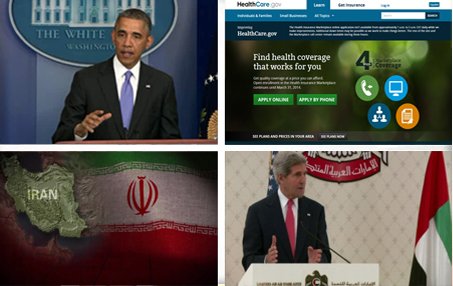
Full Episode: Fixing the Affordable Care Act and Iran Nuclear Talks

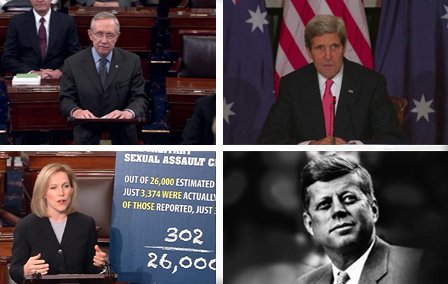
Full Episode: Senate's "Nuclear Option," 10-yr U.S.-Afghan Plan, Military Sexual Assaults & Remembering JFK

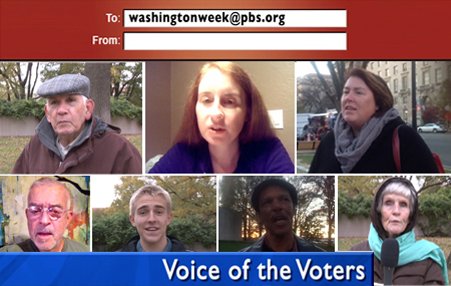
Full Episode: Gwen and Reporters Answer Viewer Questions

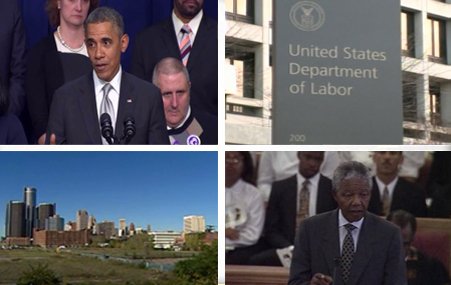
Full Episode: Affordable Care Act Improvements, Income Inequality, and Remembering Nelson Mandela

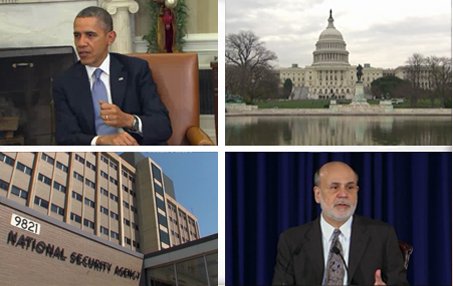
Full Episode: Budget Breakthroughs, White House Shake-ups, and John Kerry's Diplomatic Dealings

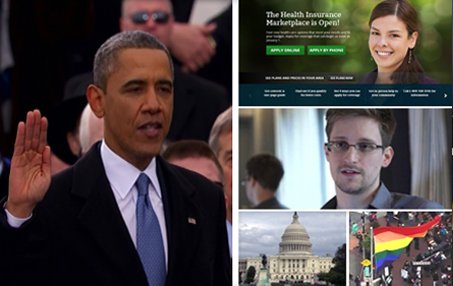
Full Episode: Obama's End of Year Presser, Monitoring the NSA, A Budget Deal in Congress, the Fed Trims Stimulus

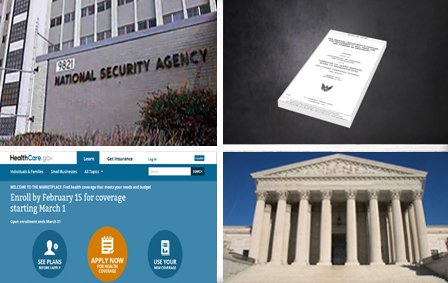
Full Episode: What Will 2014 Bring In Washington?

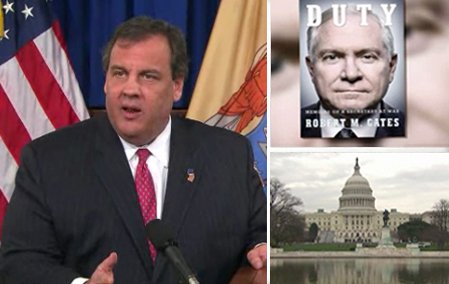
Full Episode: Christie's Traffic Troubles, Gates' Memoir, Tackling Unemployment & Focus On Poverty

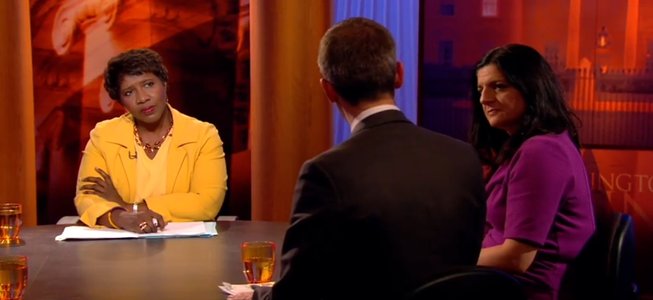
Special: Webcast Extra: Is it too early to talk 2016?

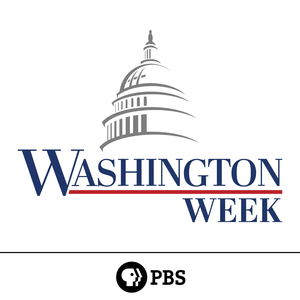
Special: Webcast Extra: Negotiations with Iran and U.S. Budget Policies

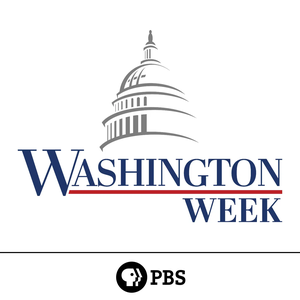
Special: Webcast Extra: Viewer Questions and New Movement on Iran Deal

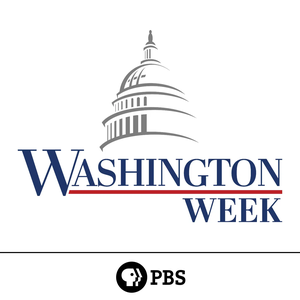
Special: Webcast Extra: Does the economy do better under Democrats or Republicans?

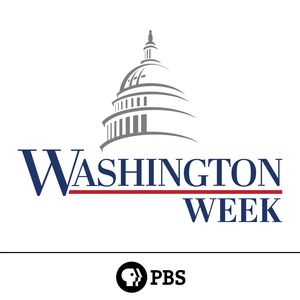
Special: Webcast Extra: Washington's priorities for 2014

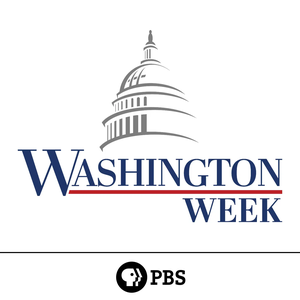
Special: Webcast Extra: The Optics of Obama's Press Conference & Changes at the Fed

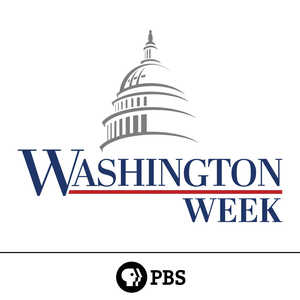
Special: Webcast Extra: The Sleeper Stories of 2014

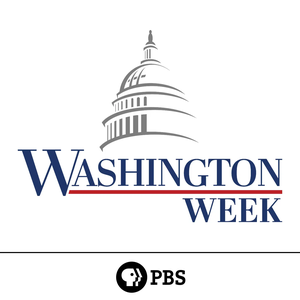
Special: Webcast Extra: Chris Christie and the Politics of Scandal

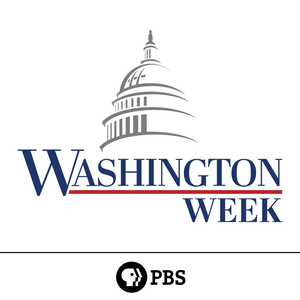
Special: Webcast Extra: Congressional retirements, recess appointments, and the NSA debate

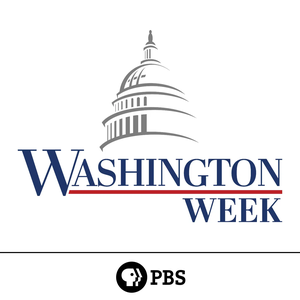
Special: Webcast Extra: Mike Huckabee & the GOP War on Women, Clemency for Snowden, and the State of the Union

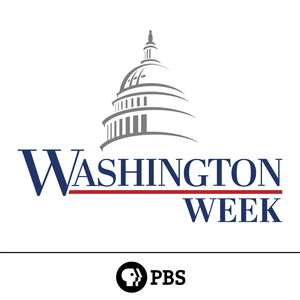
Special: Webcast Extra: The Latest Developments for Chris Christie in Bridge Shutdown Investigations

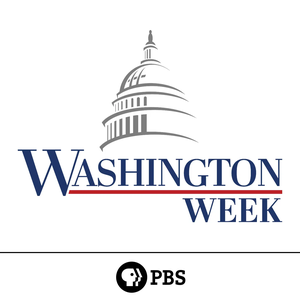
Special: Webcast Extra: Most Endangered Incumbents in 2014 & Jeb Bush's 2016 Prospects


Special: Webcast Extra: Is Scott Brown trying to make a New Hampshire comeback?


Special: Webcast Extra: Bringing Sexy Back to the 2014 Midterms

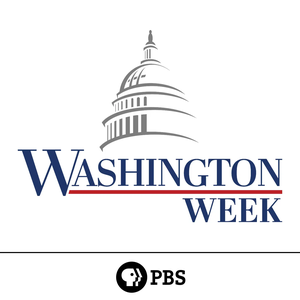
Special: Webcast Extra: Lawmakers & Shutdown Pay, Fixing Healthcare.gov, & Inside the Supreme Court

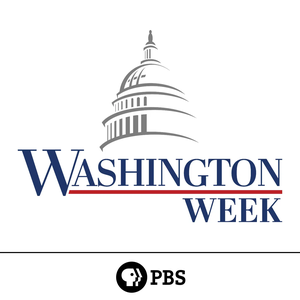
Special: Webcast Extra: Domestic and International Politics Surrounding Ukraine

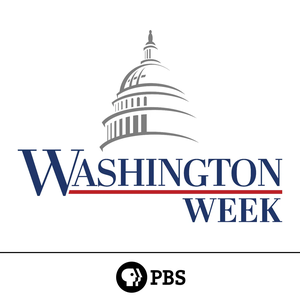
Special: Webcast Extra: Scott Brown's Comeback, Kerry-Lavrov Relationship, Ukraine Aid Stalls

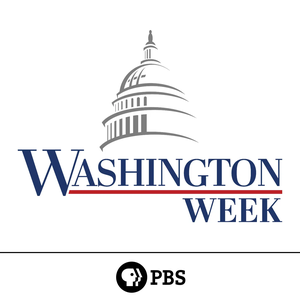
Special: Webcast Extra: Democrats Rally Women & Reporting on the Ground in Ukraine

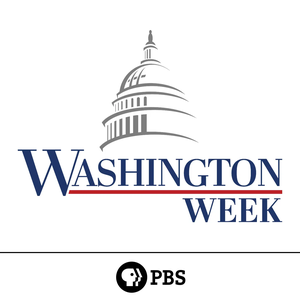
Special: Webcast Extra: Same-sex coverage under Affordable Care Act & campaign finance at Supreme Court

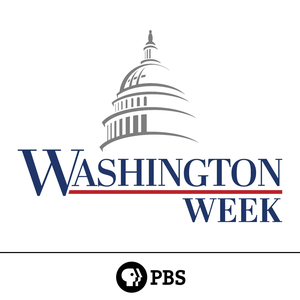
Special: Webcast Extra: Senate Pushes to Declassify CIA Torture Report

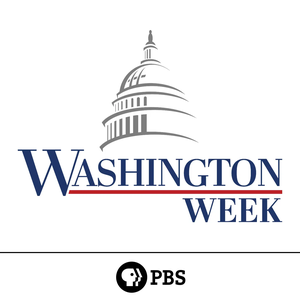
Special: Webcast Extra: Medicare Payouts to Doctors & HHS Nominee Sylvia Mathews Burwell's Background

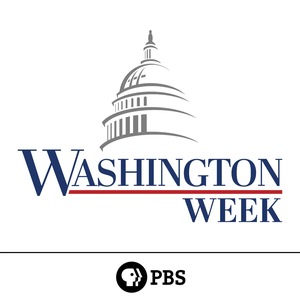
Special: Webcast Extra: Obama's Asia Pivot, Rand Paul's GOP Rise & Google's DC Footprint

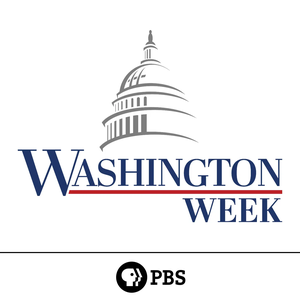
Special: Webcast Extra: Ukraine standoff and Sotomayor's strong dissent

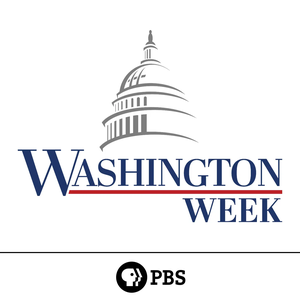
Special: Webcast Extra: Privacy & Secrecy and 2014 Election Runoffs

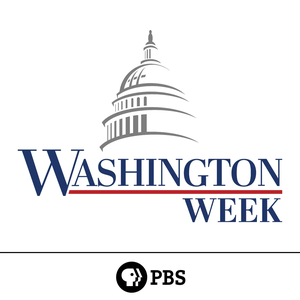
Special: Webcast Extra: Benghazi Investigations and Climate Change

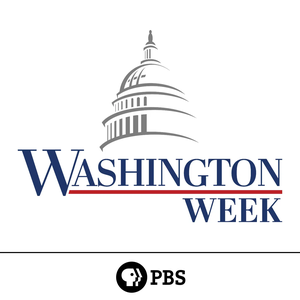
Special: Webcast Extra: Upcoming Primaries and Transgender Troops

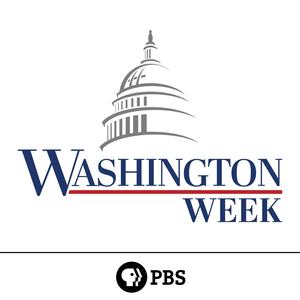
Special: Webcast Extra: NSA Practices and Same-Sex Marriage

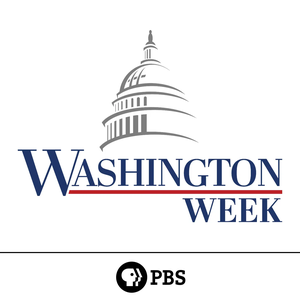
Special: Webcast Extra: Hard Choices and Iraq Involvement

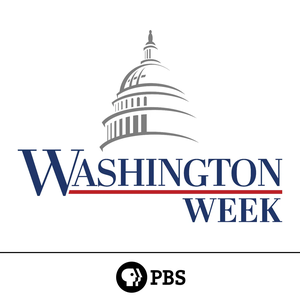
Special: Webcast Extra: "Hard Choices," Government Shutdown, and Ukraine Conflict

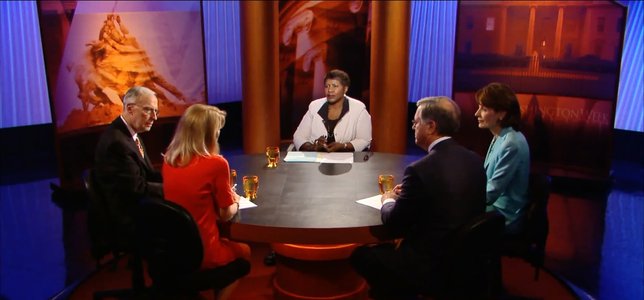
Special: Webcast Extra: Changes in Iraq, Obama's Frustration, and Hobby Lobby

© 1996 - 2026 WETA. All Rights Reserved.
PBS is a 501(c)(3) not-for-profit organization
